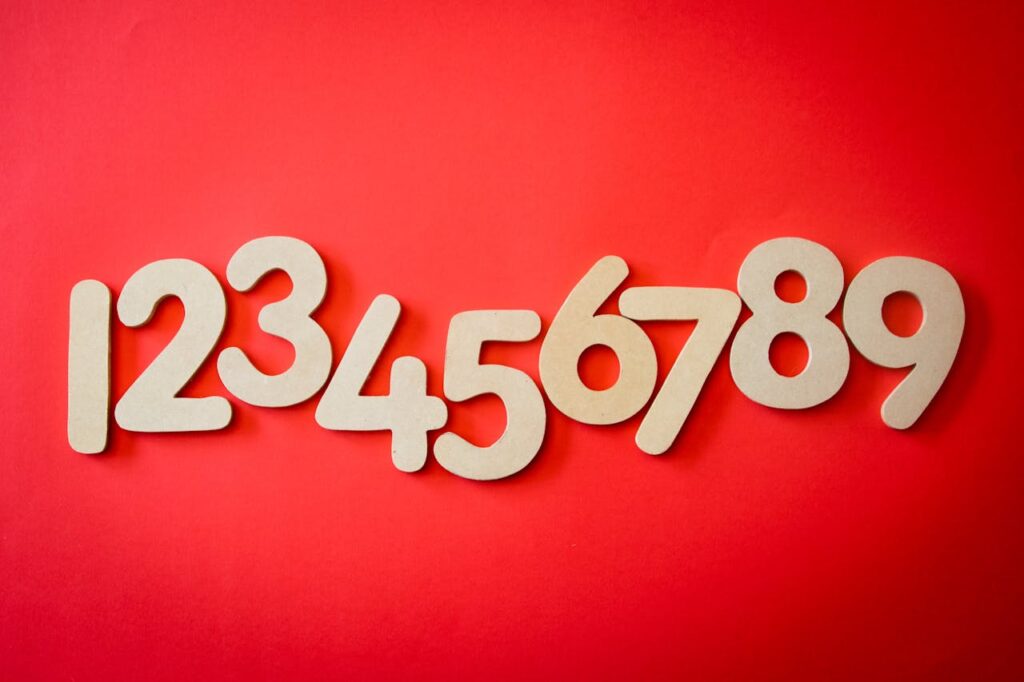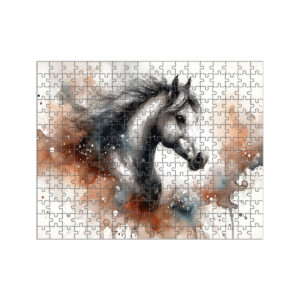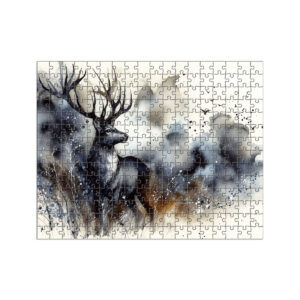
Explore & Play
Discover interesting topics and solve the accompanying crossword puzzle.
Number crossword | Deep symbolism of numbers
Table of Contents
Number Crossword
You can either fill in the crossword puzzle directly on this page or click the button in the bottom right corner to print it for free.

The Symbolism of Numbers: Superstitions, Myths, and Beliefs
Numbers are more than just tools for counting; they carry deep symbolic meanings, rooted in superstitions, myths, and beliefs that have evolved over centuries. Across cultures, numbers are seen not only as mathematical entities but also as powerful symbols that can influence our daily lives. From the number one, representing unity, to thirteen, considered unlucky in many traditions, numbers have a mystical presence. In this article, we will explore the symbolism of numbers, their role in superstitions, their connections to ancient myths, and how they continue to shape modern beliefs.
As we dive into the symbolism behind numbers, take a moment to test your knowledge with our number-themed crossword puzzle. Let’s explore how these symbols have shaped cultures and beliefs across the globe.
1. The Universal Language of Numbers
1.1 The Significance of Numbers Across Cultures
Numbers are a universal language that transcends culture, time, and space. Throughout history, people have found meaning in numbers, whether they represent quantities, time, or spiritual significance. Many cultures assign special meanings to certain numbers based on their historical, natural, or symbolic properties.
For example, seven is often regarded as a lucky number. In many cultures, it is seen as a symbol of perfection and completeness. Seven is deeply rooted in religious texts, such as the Bible, where God created the world in six days and rested on the seventh. The number also appears in ancient cultures, such as in the seven wonders of the world or the seven days of the week.
Meanwhile, the number one is universally understood as the origin or the beginning of everything. It represents unity, singularity, and a starting point, making it central to concepts of leadership, creation, and existence. In contrast, two symbolizes duality, often referring to opposites—light and dark, good and evil, male and female. This number appears frequently in philosophical and religious discussions as a fundamental principle of balance.
1.2 Numbers in Early Civilization
Numbers have played a crucial role in shaping early civilizations, forming the basis of various number systems used throughout history. Early number systems were developed for practical purposes, such as counting goods or measuring land. However, these numbers quickly began to take on deeper meanings.
For example, the three is a number that appears frequently in mythologies and religions around the world. In Christianity, the Holy Trinity—Father, Son, and Holy Spirit—represents a divine threefold unity. In Greek mythology, the three Fates controlled the thread of life, while in many other traditions, the number symbolizes completeness and harmony.
In early civilizations, the number ten became significant as it formed the foundation for our decimal system. Ten fingers on our hands likely influenced the development of the number system we use today, where ten serves as the basis for counting and grouping.
2. Numbers and Their Superstitions
2.1 The Lucky Numbers
Superstitions surrounding numbers have existed for centuries, with certain numbers considered to bring either fortune or misfortune. One of the most widely known lucky numbers is seven. In addition to its religious and cultural significance, seven is often associated with luck and success. In many cultures, finding seven of something (like seven lucky charms or seven birds) is believed to bring good fortune.
Similarly, three is considered a lucky number in many traditions. It is often seen as a number of completion and balance. In folklore, the phrase “third time’s the charm” is frequently used to convey the idea that the third attempt will be successful after previous failures.
The number eleven has also gained significance in modern superstition. It is sometimes viewed as a number of spiritual insight or a gateway to higher knowledge. Many people feel that seeing eleven repeatedly, especially in patterns like 11:11 on a clock, signifies a special moment of connection or a wish coming true.
Another number often considered lucky is twenty, which is commonly associated with milestones and achievements, such as reaching adulthood or significant anniversaries. The number can represent a new chapter in life, a moment of growth and transition.
2.2 The Unlucky Numbers
Not all numbers are seen as bringers of good fortune. In fact, some numbers are considered extremely unlucky and are surrounded by superstitions that stem from ancient fears and cultural taboos. Perhaps the most famous unlucky number is thirteen. For centuries, this number has been linked to bad luck, particularly in Western cultures. The fear of thirteen has even led to the absence of the thirteenth floor in many buildings and hotels. This superstition is often attributed to the fact that there were thirteen people present at the Last Supper, with Judas, the betrayer, being the thirteenth.
Similarly, four is seen as an unlucky number in many East Asian cultures, particularly in China, where the word for four sounds similar to the word for “death.” As a result, four is often avoided in building floors and license plates, with the number frequently replaced by three or five.
The number zero, while essential in mathematics, can also carry negative connotations. In some belief systems, zero represents emptiness, a void, or nothingness, which may evoke fear of the unknown or a sense of insignificance.
3. The Mythological Connections of Numbers
3.1 Numbers in Ancient Myths
Many numbers have deep roots in mythology, where their symbolism transcends the mundane and enters the realm of the divine. The number one, representing unity and the beginning of all things, is central to creation myths in many cultures. In various traditions, the universe is often said to have originated from a single point or a singular being, making one a symbol of the start of existence.
The number three has strong connections to mythological themes, where it often represents the divine or the sacred. The three Fates in Greek mythology, for example, determine the lifespan of humans, while the number also appears in stories of gods and spirits who operate in threes. From a practical perspective, three is seen as a balanced number—neither too few nor too many, it represents stability and completeness.
Similarly, the number four is commonly seen in many mythological traditions to represent the four elements—earth, air, fire, and water. This number embodies the natural forces that govern life on Earth and is often connected to creation stories and rituals across different cultures.
3.2 The Role of Numbers in Creation Stories
Numbers like seven, nine, and ten appear frequently in creation stories, where they often symbolize the completion of a divine task or a cosmic cycle. The seven days of creation in the Bible are perhaps the most well-known example, where each day represents a specific act of creation. Similarly, in other religious texts, seven is seen as the number of perfection and spiritual fulfillment.
The number zero is also significant in creation stories, especially in the context of the infinite or the void from which all creation emerges. In many spiritual philosophies, zero represents the beginning of everything, the space in which all possibilities exist before they manifest into form.
4. The Symbolism of Numbers in Religion
4.1 Sacred Numbers Across Religions
Numbers have always played an important role in religious texts and beliefs. For example, the number three is revered in many religious traditions. In Christianity, it represents the Holy Trinity: the Father, the Son, and the Holy Spirit. Similarly, in Hinduism, the number three represents the Trimurti, the three principal gods: Brahma, Vishnu, and Shiva. Three thus symbolizes divine unity and the cyclical nature of life, death, and rebirth.
Another sacred number is seven, which holds immense significance in Christianity, Judaism, and Islam. In Christianity, seven represents divine perfection and the completion of God’s creation. In Islam, seven refers to the seven heavens and is an important number in the pilgrimage to Mecca.
Similarly, twelve plays a significant role in many religious contexts. Christianity, for instance, associates twelve with the twelve apostles of Jesus. In Judaism, the twelve tribes of Israel are considered the descendants of the twelve sons of Jacob. Twelve symbolizes completeness and divine order in many religious texts.
4.2 Numbers and the Divine
The mystical interpretations of numbers such as eight and nine add another layer of spiritual significance. Eight is often considered a symbol of infinity, with its continuous loop representing eternal life and the cyclical nature of the universe. The number nine is linked with divine completeness and spiritual fulfillment, representing the end of one cycle and the beginning of another.
In many belief systems, these numbers are seen not just as quantities but as gateways to understanding the universe and the divine forces that govern life.
5. The Mathematical Mysticism of Numbers
5.1 Prime Numbers and Their Mystical Power
Prime numbers, those numbers that can only be divided by one and themselves, have fascinated mathematicians and mystics alike for centuries. Numbers like two, three, and five are considered prime, and they often hold special significance in spiritual and philosophical traditions. The uniqueness of prime numbers has led them to be viewed as having mystical or divine properties, symbolizing purity, individuality, and the building blocks of the universe.
For example, eleven is often seen as a number that transcends ordinary understanding. It is a prime number, but also a symbol of higher knowledge, representing the connection between the physical and spiritual realms. Many numerologists consider eleven to be a “master number” that holds significant mystical power.
5.2 The Perfect Number and Divine Proportions
The number six is considered a perfect number, a concept first developed by ancient Greek mathematicians. A perfect number is one in which the sum of its divisors equals the number itself—e.g., the divisors of six are one, two, three, and six, which add up to six. This unique property has led six to be seen as a symbol of harmony and balance in both the material and spiritual worlds.
In the field of sacred geometry, the relationships between numbers such as five, three, and six form the foundation of many artistic and architectural designs, often used to symbolize divine order and beauty.
6. Numbers and Their Place in Modern Superstitions
6.1 The Influence of Numbers in Modern Superstitions
Despite our advancements in science and technology, numbers continue to play a significant role in modern-day superstitions. Numbers like thirteen remain feared and avoided by many, especially in Western cultures, where buildings often skip the thirteenth floor. Similarly, seven continues to be revered as a lucky number in pop culture, and eleven holds significance for those who believe in synchronicities and spiritual insights.
6.2 Numerology: The Study of Numbers in Personal Life
Numerology, the study of the mystical significance of numbers, has gained popularity in recent years. In this practice, people often turn to numbers like eight (balance), five (freedom), and twenty (growth) to understand their personal lives and spiritual paths. Numerologists believe that the numbers associated with an individual’s name or birth date can offer insight into their personality, life purpose, and destiny.
7. The Role of Numbers in Popular Culture
7.1 Number-Based Movies and Stories
Numbers also play a significant role in popular culture, especially in movies, literature, and television. For example, the film “Se7en” uses the number seven to explore themes of fate, sin, and justice. Similarly, movies like “The Number 23” showcase the obsession with specific numbers and the belief that they carry hidden meanings.
Numbers like one and two are commonly used in storytelling to represent themes of unity and division. The number one often symbolizes a hero’s journey or the singular importance of an individual, while two might represent opposing forces or characters, often highlighting conflict or contrast.
7.2 Famous Figures and Their Numbers
In popular culture, milestones like thirty and forty are often associated with life stages and transformations. These numbers mark key moments of change or achievement, representing maturity, wisdom, and new beginnings.
Conclusion: The Endless Fascination with Numbers
Numbers will continue to fascinate and mystify humanity for generations to come. Whether through their symbolism, superstition, or mathematical properties, numbers carry deep meaning across cultures and histories. They shape the way we perceive the world, guide our actions, and influence our beliefs.
Explore the mystical world of numbers further by solving our engaging crossword puzzle, and delve into the symbolism that shapes our world.
Share to...
I hope you enjoy the content.
Want to receive our daily crossword puzzle or article? Subscribe!
You may also be interested in
Share to…
Want to receive our daily crossword puzzle?
-
Jigsaw Puzzles
Autumn Whiskers and Pumpkin Paws Puzzle 250 | 300 | 500 Pieces
kr 348,00 – kr 439,00Price range: kr 348,00 through kr 439,00 Select options This product has multiple variants. The options may be chosen on the product page -
Jigsaw Puzzles
Majestic Horse Watercolor Jigsaw Puzzle 250 | 300 | 500 Pieces
kr 348,00 – kr 439,00Price range: kr 348,00 through kr 439,00 Select options This product has multiple variants. The options may be chosen on the product page -
Jigsaw Puzzles
Majestic Stag Watercolor Jigsaw Puzzle 250 | 300 | 500 Pieces
kr 348,00 – kr 439,00Price range: kr 348,00 through kr 439,00 Select options This product has multiple variants. The options may be chosen on the product page

















